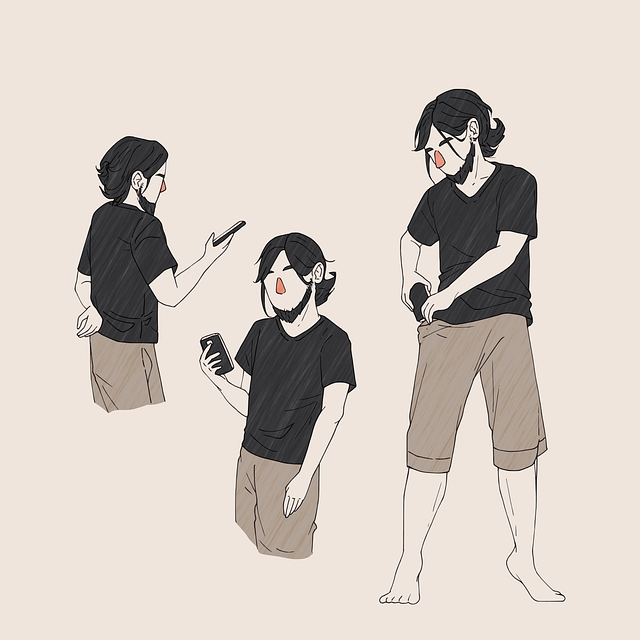In New Hampshire, including Rochester, unwanted calls are regulated by state law (NHRSA § 657:4), making it crucial for victims to understand their rights and seek legal help. Local law enforcement actively tackles these cases, offering support and guidance. Victims should document call details, file police complaints, and consider hiring a lawyer specializing in New Hampshire's unwanted call cases to navigate complex laws, file complaints, and take legal action against harassers. Choosing the right attorney with telecommunications law expertise is vital for swift resolution and protection of your rights. Documenting evidence, including call records and witness statements, strengthens your case against relentless phone harassment.
“Navigating unwanted calls can be harrowing, especially in Rochester, NH. Understanding local laws, particularly those in New Hampshire, is crucial. This guide delves into the process of dealing with law enforcement and filing complaints effectively. From recognizing illegal practices to choosing the right lawyer, you’ll learn how to protect yourself.
We outline the steps to take, ensuring you understand your rights and the role a legal professional can play. By following these strategies, residents of Rochester can combat unwanted calls and seek justice.”
Understanding Unwanted Call Laws in New Hampshire

In New Hampshire, unwanted calls, also known as telephone harassment or telemarketing fraud, are governed by state laws designed to protect residents from intrusive and deceptive practices. The New Hampshire Revised Statutes Annotated (NHRSA) § 657:4 outlines specific restrictions on telemarketers and sales calls, including requirements for obtaining prior consent. If you’ve been a victim of unwanted calls in Rochester or anywhere in New Hampshire, it’s crucial to understand your rights and the legal avenues available to address this issue.
Hiring a lawyer specializing in unwanted call cases in New Hampshire is an important step towards resolving these issues effectively. Legal professionals can guide you through the complex laws and help navigate the process of filing complaints or taking legal action against the culprits. A lawyer for unwanted call New Hampshire can provide valuable assistance, ensuring your rights are protected and working to stop the harassment at its source.
The Role of Law Enforcement in Handling Unwanted Calls

In Rochester, NH, law enforcement plays a pivotal role in addressing unwanted call cases, often involving harassment or fraud. When faced with such incidents, their primary responsibility is to protect citizens and maintain public safety. They conduct thorough investigations, utilizing forensically sound methods to trace and identify perpetrators. This involves collaborating closely with communication service providers and leveraging advanced technologies to combat non-consensual calling activities.
Law enforcement agencies work hand-in-hand with victims, providing support and guidance throughout the process. They ensure that appropriate legal actions are taken against offenders, which can include civil or criminal charges, depending on the severity of the unwanted calls. Their expertise in gathering evidence and testimony significantly assists victims, many of whom might be unsure about their rights or how to proceed, by connecting them with resources, including a lawyer for unwanted call cases in New Hampshire, to navigate legal complexities effectively.
Taking Action: Steps to File a Complaint with Local Police

If you’ve experienced unwanted calls, such as harassment or persistent phone calls from unknown numbers in Rochester, NH, taking action is crucial. The first step is to gather evidence by recording the dates and times of the calls, noting any identifying information about the caller, and keeping a log of the conversations. Next, contact the local police department to file a complaint.
To file a complaint with the Rochester, NH police, you’ll need to visit the station or make an appointment to speak with an officer. Have your evidence ready, including call records, voicemails, or any recordings. An officer will guide you through the process, take down your statement, and document the incident. They may also provide advice on next steps, which could include involving a lawyer for unwanted call cases in New Hampshire to ensure your rights are protected.
Choosing the Right Lawyer for Your Case in Rochester, NH

When dealing with unwanted call cases in Rochester, NH, selecting the appropriate legal counsel is a pivotal step. Look for a lawyer specializing in telecommunications law or having experience with similar cases. This expertise ensures they understand the intricacies of New Hampshire’s laws regarding unwanted calls and have the knowledge to navigate the legal process effectively.
Consider attorneys who are well-versed in negotiating with law enforcement. The right lawyer can mediate between you, the authorities, and potential perpetrators, helping to resolve the issue efficiently. Additionally, seek a lawyer with a proven track record of successful cases involving unwanted calls to ensure they have the skills and determination to fight for your rights as a New Hampshire resident.
Building a Solid Case Against Unwanted Callers

When dealing with unwanted calls, building a strong case against the perpetrators is crucial. In Rochester, NH, individuals who have been plagued by persistent and harassing phone calls can take legal action. The first step is to gather evidence; this includes saving all call records, such as date, time, duration, and any specific content or threats made during the calls. A lawyer for unwanted call New Hampshire can guide you in collecting and preserving this evidence, ensuring it’s admissible in court.
Creating a detailed log of each incident, including any patterns or recurring numbers, is essential. Additionally, obtaining statements from witnesses or victims who have received similar calls can strengthen your case. With the right documentation, a legal professional can help navigate the process, ensuring you take the necessary steps to stop these unwanted intrusions and hold the callers accountable for their actions.






